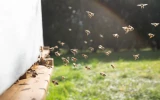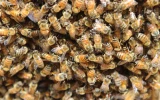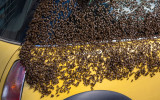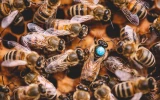What Time Of Day Are Bees Most Aggressive?
Bees are often known to be very territorial, and people sometimes mistake bee aggression for bee sting attacks. Bees are not naturally aggressive; however, when they are, there is certainly a reason behind it.
Bees usually get aggressive between 10 a.m. and 4 p.m. — which are their most active hours. During this time, bees are busy foraging for nectar and pollen from flowering plants, and they become more easily disturbed and irritated by external factors, such as other bees or humans invading their space.
On the other hand, there are times when bees may become more aggressive than usual. If you want to know when bees are most likely to become aggressive, keep reading.
Summary
- Bees tend to be aggressive from mid-morning to late afternoon.
- Bees become aggressive due to the weather, lack of food or water, human interference, presence of a predator, poor hive conditions, and absence of a queen.
- Beekeepers can prevent bee aggression.
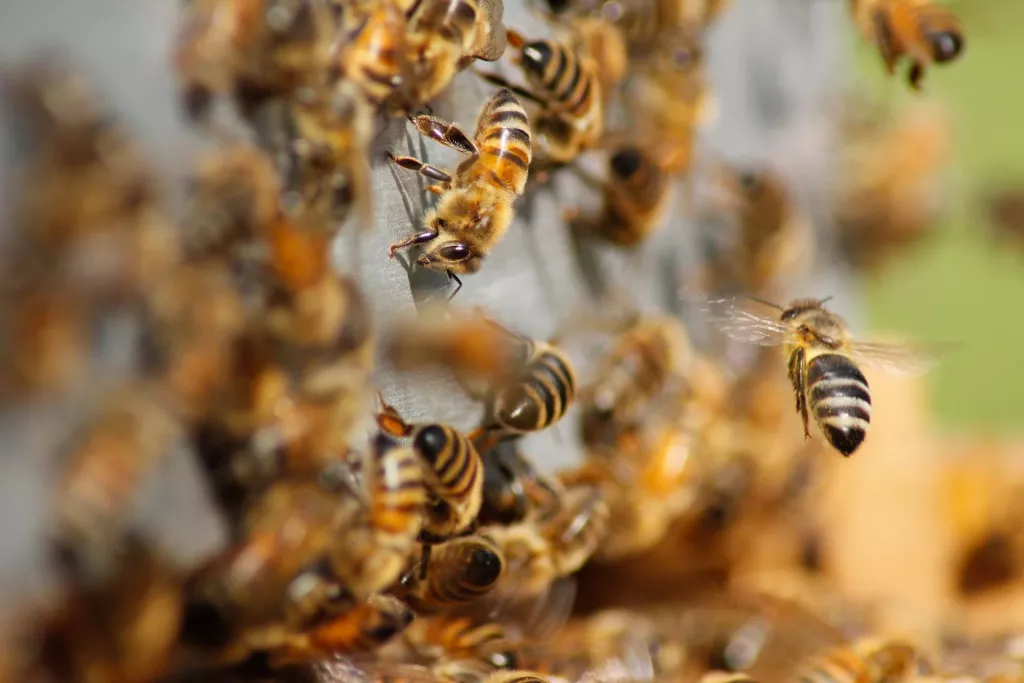
On this page:
Time of Day Bees Are Most Aggressive
On regular days, bees are most aggressive around mid-morning and late afternoon. These periods of time coincide with when the bees are out foraging for food. During early morning or nighttime, bees are most likely to be resting and conserving energy, so they pose little threat then.
Busy bees are most active between 10 a.m. and 4 p.m. because of the warmth. As they are busy hustling for food and taking care of their hive, they become easily disturbed. As soon as they sense a threat to them or their home, they are likely to become more territorial and aggressive.
However, if you wander into the bee’s territory, such as their hive or a flowering plant they are protecting, at any time of day, you can expect them to become more defensive and possibly aggressive.
If you plan on being outdoors in an area where bees are present, it is best to avoid being outside during these hours. If you must venture out, avoid wearing bright colors and sweet-smelling fragrances that could attract the bees’ attention. It is also important to keep your distance and not approach the beehive or any bees that you may come across.
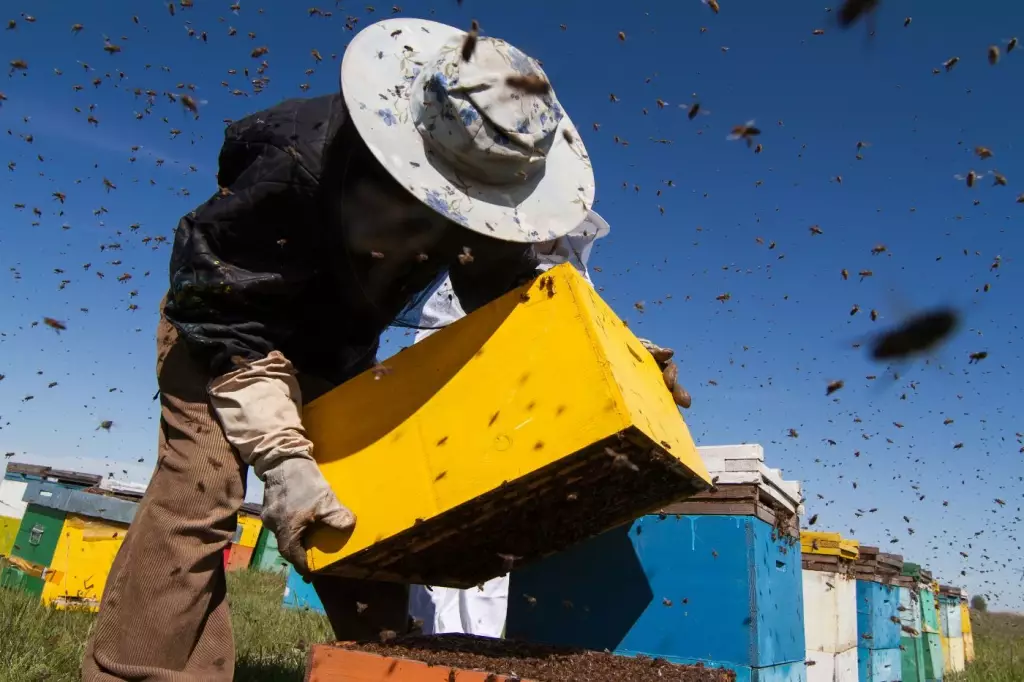
Other Factors That Make Bees More Aggressive
In addition to the time of day, there are other factors that can increase the likelihood of bee aggression. These may include:
Lack of food or water sources in the vicinity
This can be either seasonal or year-round. If the bees can’t find the resources they need to survive and sustain their hive, they may become more aggressive in seeking food or water.
There's a thing called "nectar drought" that can also cause bees to be more aggressive as they are hungry.
Human interference in their nest or hive
Bees become defensive when humans or animals invade their space or interfere with the hive. If you come too close to a bee’s nest, it is likely that some of the bees will become more territorial and attack in defense of the hive.
A study conducted by Dylan Voeller and James Nieh concludes that a bee's aggression is most likely to occur when they feel disturbed by various external factors. They found that bees in the hive are most aggressive when they perceive a threat, such as a human or animal coming too close.
The presence of a predator
Bees are always on the lookout and can sense when there is danger nearby. If they sense the presence of a predator or any other type of threat, they may become more aggressive in order to protect their hive.
That's why bees become more aggressive if you stand too close to their hive or try to touch them. They can sense that you are a threat and will attack in order to protect their home.
Poor hive conditions
If the bees’ hive has poor ventilation or is overcrowded, they may become more aggressive in defending their home. Poor living conditions can also lead to decreased productivity and a weakened hive, which may lead to more aggression.
Other bugs stealing their food
Bees can be territorial when it comes to their food sources. If they sense another bug is stealing nectar or pollen from their flowers, they may become aggressive in order to protect their resources.
Hornets and other bugs also pose a threat to bees, which can cause them to become defensive and more aggressive.
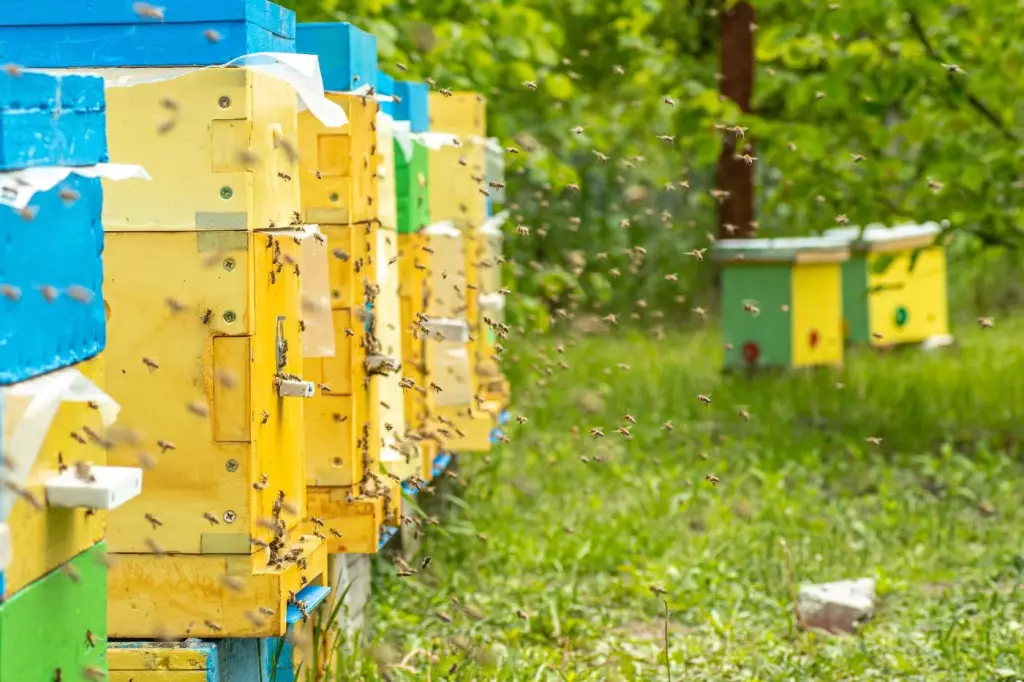
Weather
Extreme weather conditions can also affect the bees’ behavior. In very hot or cold temperatures, they may become more aggressive as a result of stress.
In the weather, temperature fluctuations, such as a sudden drop in temperature, can cause bees to be more agitated and aggressive. So keep an eye on the weather when going out into areas with bees.
No queen bee
If there is no queen bee present in a hive, the other bees may become more aggressive and territorial as they try to protect their home. They are also likely to be more protective of any potential new queen bee.
Having no queen in the hive confuses the bees and can cause a hive to become more aggressive as they sense danger.
All of these factors can contribute to an increase in bee aggression, so it is important to be aware of the signs and take precautions when around bees. A good rule of thumb is to avoid being outdoors during the peak hours for bee activity, and take extra care not to disturb their hive or territory.
What Beekeepers Can Do to Reduce Aggression
A bee's aggression can be inevitable for beekeepers to experience, especially when managing a hive. However, there are steps that can be taken to reduce the risk of honey bees becoming aggressive.
There's only one way to tame aggressive bees, and calming them down is a way to do so.
Provide food and water
Any creature usually gets aggressive when it's hungry or thirsty, and it's the same for bees.
Make sure your bees have access to food and water sources, especially during the summer months. This can help reduce the stress on your hive and make them less likely to become aggressive.
Helping the bees find their food source can also be a good way to keep them calm.
Maintaining the right humidity levels
It is important to maintain the right humidity levels in the hive, as this can help reduce aggression. Bees become more aggressive if their hive is too dry or too humid. Humidity levels should be between 40 and 60 percent.
Avoid checking the hive too often
It’s important to check your hive regularly, but checking it too often can disturb the bees and make them more aggressive. Disturbing bees can cause them to become defensive, so try to limit the number of times you check your hive.
For example, they would become aggressive if a beekeeper opened the hive too often during the day or night. Beekeepers should try to check their hives at the same time every day to provide the bees with a sense of stability.
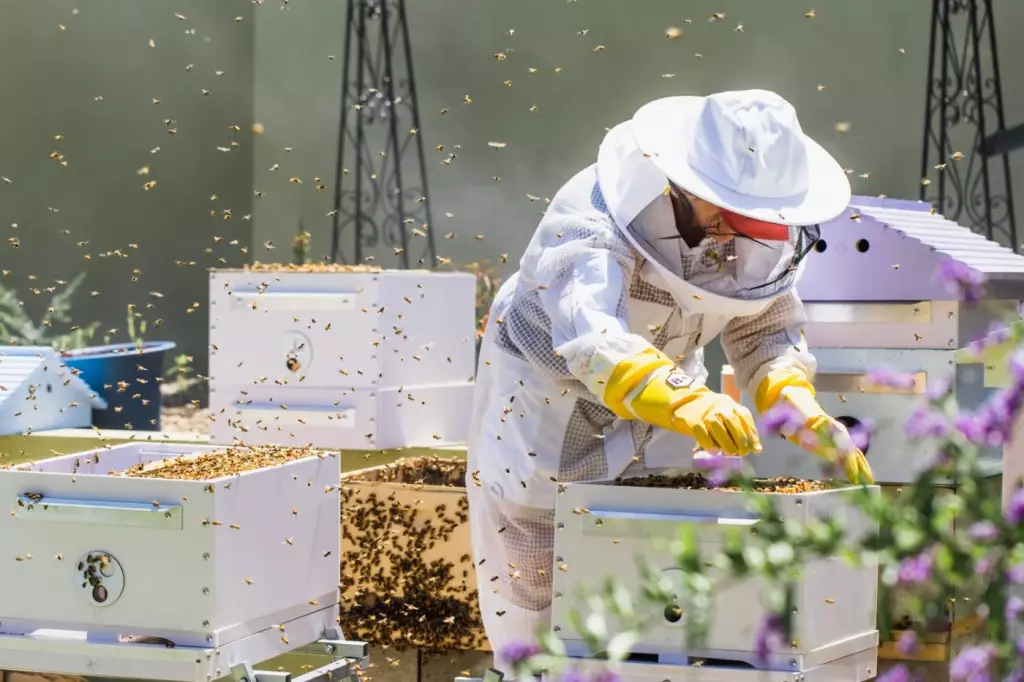
Lessen noise
Bees can become agitated by loud noises, so it’s important to minimize any noise around the hive. Try to limit the use of tools and equipment that could make a loud noise, as this can cause the bees to become defensive and aggressive.
On top of that, beekeepers should also try to keep lighting around the hive to a minimum, as too much light can also make bees more aggressive.
Avoid wearing strong-scented perfumes or lotions
Strong-scented perfumes and lotions can attract bees, which can make them more defensive and aggressive. Honey bees aren't fond of strong smells, so it's best to avoid wearing scented perfumes and lotions when working with bees.
Bananas are one scent that bees dislike. And there is so much more to add to that list. They are extremely sensitive to scents, and wearing one can attract them and make them more aggressive.
For beekeepers, the best way to avoid bee aggression is to practice good beekeeping habits and take steps to reduce stress on the hive. By providing food, water, and a stable environment, beekeepers can help reduce the chances of their bees becoming aggressive.
